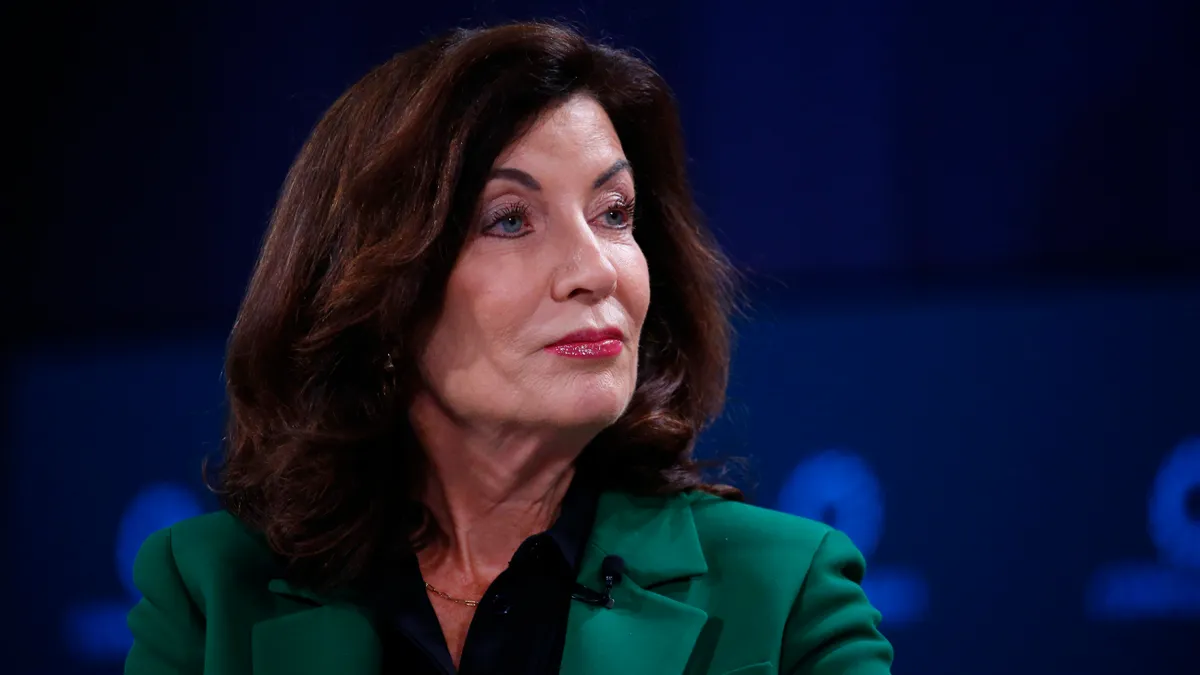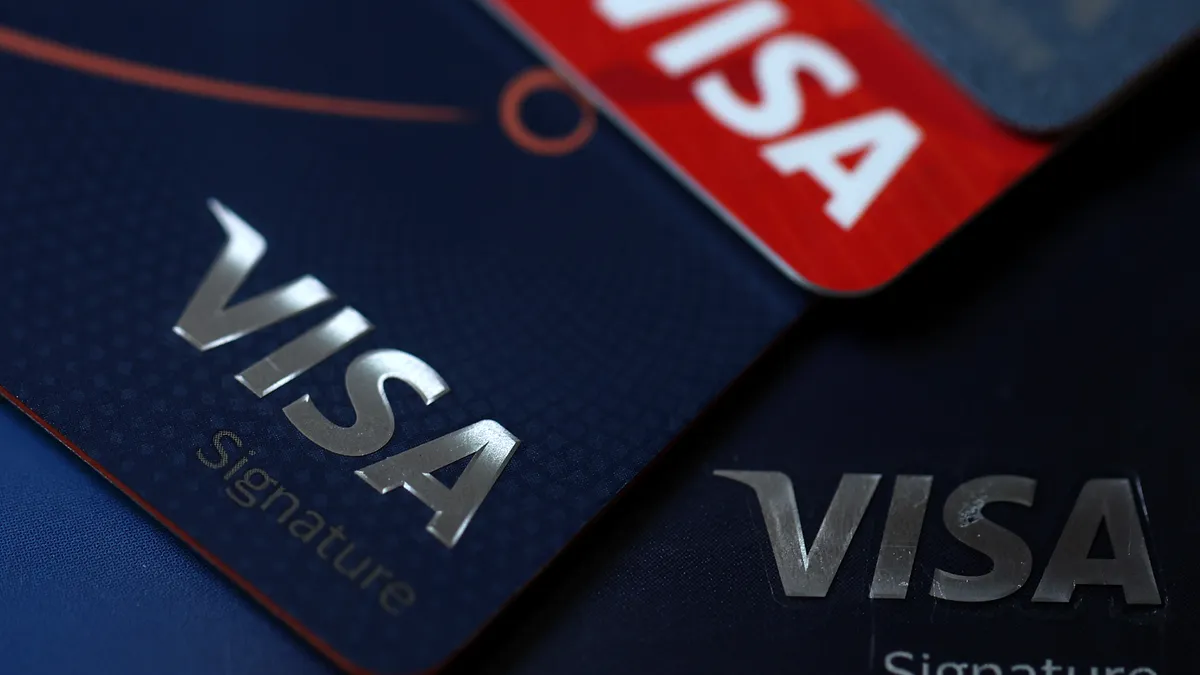New York Gov. Kathy Hochul last month signed a law prohibiting merchants from imposing credit card surcharges that are more than what they are charged by the “credit card company” for such transactions.
In addition, the new law, effective next month, requires merchants to “clearly and conspicuously post the total price for using a credit card” in such a transaction, including the surcharge, according to the text of the bill.
The Democratic governor touted the law in a Dec. 13 press release as a way to provide New Yorkers with more consumer protection and increase their purchasing power.
New York state legislative backers of the law said it was a win for consumers who will now have more transparency in understanding the final cost of a transaction before checkout. “Transparency in pricing is critical so people can make informed decisions when spending their hard-earned money,” Democratic Sen. Jeremy Cooney said in a Dec. 13 press release from Hochul’s office.
Under the New York law, merchants could face a civil penalty of $500 for every violation, according to the release.
New York’s effort to increase pricing transparency falls in line with similar moves at the federal level to eliminate junk fees and hidden fees, said Kristen Larson, an attorney at the law firm Ballard Spahr who specializes in payments. She noted the Consumer Financial Protection Bureau’s battle against such fees under the Biden Administration.
“We’ve seen a lot of pressure at the federal level regarding direct pricing, where they're worried that consumers don't know what the cost of services and products they’re buying because they get to the checkout and there’s increased fees,” said Kristen Larson, an of counsel attorney with the law firm Ballard Spahr in Minneapolis. “I think New York believes that it's clearing up that confusion.”
Capping surcharges gains momentum
Still, the new state law also lands as credit card issuers and networks are seeking to keep a lid on the surcharges that merchants can impose. In August, New Jersey passed a new law that similarly requires merchants to limit credit card surcharges to the costs that they bear in processing that payment.
Also, card network giant Visa made a move last year to cap surcharges at 3%, threatening to impose fines on merchants who don’t comply.
Larson doesn’t see the new New York law doing much for the credit card networks because they’d rather there was no surcharge at all, she said. Visa’s effort to cap surcharges is more about making sure it’s not at a disadvantage to other processing arrangements, she said.
Meanwhile, a bipartisan group of Congress members back U.S. legislation aimed at injecting more competition into the credit card processing arena. Sen. Roger Marshall, a Republican from Kansas and Dick Durbin, a Democrat from Illinois, are behind that bill, known as the Credit Card Competition Act, It has so far failed to achieve a vote in either chamber. Nonetheless, retailers and merchants backing the bill are gearing up to keep pushing it this year, and the bill’s bank and card company detractors are also preparing for that fight.
Dual pricing can continue in New York
The New York law doesn’t prohibit sellers from using a dual pricing system. “Businesses in New York are permitted to offer two-tiered pricing systems in which the credit card price for certain sales transactions is posted alongside the cash price,” the governor’s release said. “By requiring businesses to post the highest price that a consumer might pay, this legislation helps to promote transparency and ensure that consumers are informed about their purchases.”
For merchants, the New York law could be burdensome in terms of implementing new pricing arrangements that require more labor or computer programming, Larson predicted. “They're making it more of a hassle for merchants to charge a credit card surcharge,” Larson said.
As to whether more states are likely to follow suit in imposing such surcharge restrictions, Larson said she doesn’t expect to see a domino effect because, despite the situation in New York, merchants are typically effective in fending off such new laws.
The New York law takes effect Feb. 11, according to a post by Ballard Spahr.




















